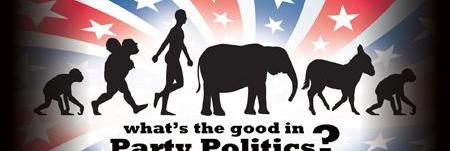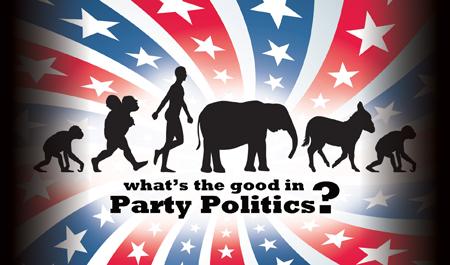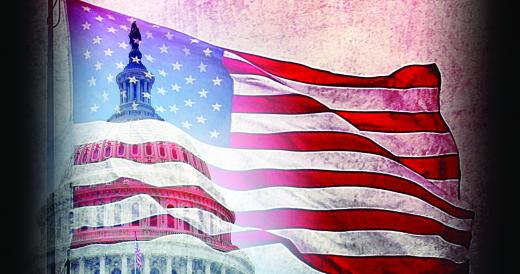Location:
Alexander Hamilton promised that the Constitution would “unite parties for the general welfare,” but Washington perceived that “the baneful effects of the spirit of Party” continued to threaten the republic. In the centuries since, we have blamed partisans and identified with parties. Both of our major parties are grab bags of discordant factions, as we will discuss with an eye to how politicians appeal to common aspirations and contradictory assumptions. As part of our discussions, we will look at the historical evolution of party politics, including campaigns, polls, slogans, conventions, debates, and political rhetoric more generally. This historical perspective will provide us with opportunities to step back from partisan politics to reflect upon other pivotal moments in the history of American politics.
The course will begin by reviewing the political writings that shaped the constitution of the national government, and shared assumptions about the national character. We will use the writings of Madison, Hamilton, and Jefferson to explore the morals and mores of representative self-governance. Our Constitution was meant to form a harmonious balance among competing factions. Factionalism was traditionally seen to arise from the heated rhetoric of demagogues who undermined the common good by inflaming self-interest. Those anxieties deepened with the populist politics of the Jacksonian era. The emergence of the first political parties in the early nineteenth century will provide us with a frame of reference for reflecting upon the traditional republican assumption that deliberations upon our shared values can enable us to achieve the common good.
The election of Andrew Jackson will provide the first of several pivotal campaigns that we will use to explore the evolution of party politics. We will trace that evolution by examining how differing demographical groups have shaped the ideologies of political parties, including not only the entrance of women and minorities into the political process, but also how class, education, and regional differences have shaped who and what gets represented in our political deliberations. We will use these factors to assess the development of particular aspects of political campaigns, including advertising, opinion polls, rhetorical appeals such as ethos and pathos, and campaign themes that attempt to represent who we are and what we value.
These historical points of reference will be used to frame discussions of the political campaigns of 2012. Each week we will focus on a particular aspect of the campaigns, such as primaries, ads and slogans, opinion polls of demographic groups, and representations of issues such as taxation, education, and war. We will frame these aspects of the campaign by drawing historical parallels with previous pivotal elections. For example, we will examine how current candidates represent current international conflicts, financial crises, regulatory priorities, and taxation, and then we will look to other elections where wars abroad and woes at home figured into debates about who will best represent our shared needs and aspirations.
Required Reading:
Lipsman, Ron. Liberal Hearts and Conservative Brains: The Correlation between Age and Political Philosophy. Lincoln, NE: iUniverse, 2007. ISBN: 978-0-595-46320-6.
Lakoff, George. The Political Mind: Why You Can’t Understand 21st-Century American Politics with an 18th–Century Brain. Viking Adult, 2008. ISBN: 978-0-143-11568-7.
Recommended Reading:
Hershey, Marjorie R. Party Politics in America. 14thed. Longman, 2010. ISBN: 978-0-205-79319-8.
Please note that the UA Bookstore ordered copies of only the newest (15th) edition of Party Politics in America. It is NOT NECESSARY to purchase the 15th edition as this edition is quite a bit more expensive than the 14th edition. Amazon.com sells several used editions of the 2010 edition at a reasonable cost. Again, please note that this text is only recommended, and not required.







